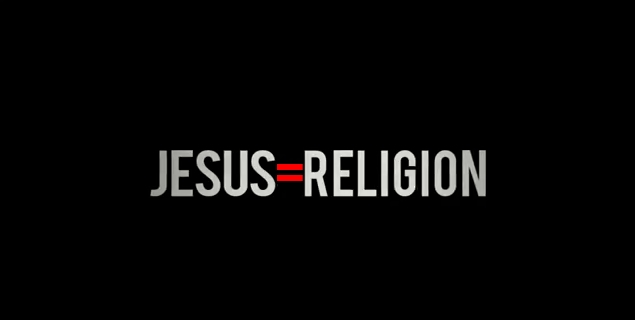—–
Question 2.
How many things are necessary for thee to know, that thou, enjoying this comfort mayest live and die happy?
Answer.
Three; the first, how great my sins and miseries are; the second, how I may be delivered from all my sins and miseries; the third, how I shall express my gratitude to God for such deliverance.
O wretched man that I am! who shall deliver me from the body of this death? I thank God through Jesus Christ our Lord. Rom. 7:24, 25.
—–
So in 1558, an 82 year old man is martyred for his faith. And that’s one of the significant events, a catalyst moment, in the Reformation in Scotland.
Biologically beneficial, huh? What about some other effects like STD’s? Unwanted births? Destruction of families?
Here’s a correlation scientists might not pick up on: there’s a reason why our straying from God is also called adultery: sin.
4 Things I would Rather Do Instead of Listening to a Prosperity “gospel” Message
Here’s a fun comic from Adam Ford.
The transformation of Zacchaeus is a testimony to the power of Jesus to save. When you are meeting with seekers who want God, don’t get in the way of the capital S Seeker who seeks and saves the lost. He is the One who can transform a heart.
Pray to Him. Ask Him to put you in the right place at the right time. Do whatever it takes to introduce people to Him. Don’t make seekers climb trees to get around you in order to see Jesus.
Digging out of the celebration of the Lord’s Day is in itself a refreshing thing. Turns out, greater obedience in this area gave me greater insight into what kind of rest I actually need. I don’t need a clean space, I need an obedient one. I don’t need a perfect haven of restfulness, I need a heart of rest. I don’t need all the external resources to celebrate the Lord’s Day without consequences. I need the consequences of the Lord’s Day for the rest of the days to be joyful.
We Don’t Have to Read the Book or See the Movie to Know Heave is Real
Until then, we do not need the testimony of an impressionable 4-year-old boy, a neurosurgeon, spine surgeon, sports writer, or even a pastor to know that heaven is real. We have everything we need in the Bible. Its testimony is enough to generate genuine faith in Christ, as well as a greater longing for unending life in his presence.
3 Common Traits of Youth Who Don’t Leave the Church
This is not a formula! Kids from wonderful gospel-centered homes leave the church; people from messed-up family backgrounds find eternal life in Jesus and have beautiful marriages and families. But it’s also not a crapshoot. In general, children who are led in their faith during their growing-up years by parents who love Jesus vibrantly, serve their church actively, and saturate their home with the gospel completely, grow up to love Jesus and the church. The words of Proverbs 22:6 do not constitute a formula that is true 100 percent of the time, but they do provide us with a principle that comes from the gracious plan of God, the God who delights to see his gracious Word passed from generation to generation: “Train up a child in the way he should go; even when he is old he will not depart from it.”
—–
I love this scene from the first Middle Earth movie, The Fellowship of the Ring. In this short clip, Gandalf is telling Bilbo that he needs to leave the one ring behind (to later be taken up by his nephew, Frodo). The lure of the ring – Tolkein’s imagery for sin – is too much for Bilbo and it causes him to respond with greed and selfishness at such a request.
Gandalf’s response is both powerful and endearing.
His initial reaction is stern and booming, powerful and strong. He reminds Bilbo of who he is NOT – someone out to harm him. He follows up this somewhat fearful presentation with gentleness and love, reminding Bilbo of who he IS – someone who is there to help him.
I think Christians can learn a lot from this short scene. I’ve written previously on how in Christ we grow and become more of a complete person. In summary of my last post, what I mean by this is that we are being “rounded out” as Christians; we learn to convey a wide variety of emotions because we are being made whole by Christ. We know when to let our emotions out, and we know when to rope them in. This ability comes through growth and faith in our Savior as he makes us more like him.
An additional reflection of this growth in Christ is learning wisdom and discernment for when we should be stern and strong, or gentle and humble. The truth is, the Bible can sometimes come off as being full of dichotomies. Sometimes we see Christ or the Apostle Paul (and many others) speaking in one way, but then at other times we seem them acting or speaking in a way that seems contrary to their previous behavior.
So how do we reconcile these things?
How do we know whether to make a whip of chords and flip tables (John 2:15-17), or gently speak to others about grace and truth (John 4:1-45)?
How do we know whether to strive for unity and destroy divisions in the church (1 Cor. 1:10-17), or to preach strongly against false teachers and their doctrines (1 Tim. 1, 6)?
How do we know whether to encourage love and peace (2 Cor 13:11-12), or to employ sarcastic rhetoric and defend ourselves (2 Cor 11)?
We can learn something here from that wiry old wizard: we need to know when and how to do both.
Too often in this post-modern culture, our desires for peace and “tolerance” work its way into the church, so we’re content with just saying “as long as you claim the name of Jesus, we’re good.” On the flip side, brothers and sisters who are filled with pride and arrogance hatefully and jealously fight and slander one another in a manner that looks anything but Christian. Are these really the only two sides to the Christian reality?
Part of growth as a Christian is learning discernment and wisdom. And as we become more like Christ, we will know when its appropriate to engage in conversations that sometimes require strong and forceful actions, language, and tone. We will also learn when it is appropriate to be gentle, nurturing and soft.
The root of either end of the spectrum is love. We should always be rooted in love, and our actions should always be winsome. Therefore, it is entirely possible for us to contend, fight, defend and argue for the faith and do so lovingly and gently. The Christian defense and contention looks distinctively different from how the world would do it. In contrast, it is quite easy for us to claim peace and unity, but do so in an unloving fashion. While it may appear loving on the surface, at its root our “peaceful and loving” actions are actually rooted in fear of man, insecurity, and a lack of confidence.
The first test to ask yourself in any situation is: am I acting out of love for others that is rooted in Christ? The answer to this question will probably give you a clue as to whether you’ve discerned the appropriate behavior and speech.
As for Gandalf, well, he’s a good example but less than a mere shadow of the One we follow. Seek him, look to him. Believe him. Follow His example.
In the opening line to his poem Why I Hate Religion, But Love Jesus, Jefferson Bethke says this: “What if I told you Jesus came to abolish religion?” I’m not trying to review a two-year-old video and I’m not trying to take a stab at Mr. Bethke, but his comment and poem articulate a sentiment common and pervasive in Evangelicalism today. Wanting to separate themselves from the empty rituals and meaningless church-going habits of the generation before them, we Evangelicals today flaunt a Christianity that isn’t a “religion” but a “relationship.” T-shirts, books, and 26-million-views YouTube videos all scream one unanimous fact: Evangelicals hate the word “religion.”
But is this hatred valid? Is it even Biblical?
The Websters dictionary defines religion simply as “the belief in a god or in a group of gods; an organized system of beliefs, ceremonies and rules used to worship a god or a group of gods.” Semantically speaking, doesn’t that define Christianity? Now, I get it. Christianity is different from most world religions because it address matters of the heart. The Gospel of Mark tells us that Jesus is primarily concerned with matters of the heart (Mark 12:41-44), and Luke records for us that it is a contrite heart and not our outward acts by which we honor God (Luke 18:8-14). Through the prophet Ezekiel, God says he will replace our heart of stone and instead give us a heart of flesh (Ezekiel 36:26).
But didn’t Jesus himself say that he was “the Way” (John 14:6)? And couldn’t we (loosely) agree that following “the Way” means repentance and faith, a contrite heart, participating in Christ-instituted practices (such as baptism and the Supper, church discipline, etc.), living all of life as worship, belonging to and serving Christ’s church (which brings up another host of issues for evangelicals who want to have Christ without his bride), feasting on the Word, and a Spirit-fueled life of good deeds towards our fellow men?
So…isn’t that religion?
Whereas the Apostle Paul’s primary concern in his letters is often man’s standing before a Righteous God (especially Romans), James’ Epistle is primarily concerned with our standing before our neighbor. One way that is helpful to read the book of James is by asking the question, “In light of Christ’s sacrifice on the cross, how then shall we live?” James’ answer is that the life of a true Christian must be filled with good deeds.
Anticipating the rebellion of 21st century Evangelicals, James writes this:
Religion that is pure and undefiled before God, the Father, is this: to visit orphans and widows in their affliction, and to keep oneself unstained from the world. – James 1:27
James answers the question above with this answer: Jesus FUELS Religion. Jesus is THE Way; He is THE Religion. In light of his substitutionary sacrifice for sinners – standing in our place – and the gift of the Holy Spirit, it is only in Christ that true religion is possible. It is because Christ gives us a new heart that we can participate in true, heart-filled and Spirit-led religion.
Bethke continues in his poem by saying, “Jesus and religion are two different clans.” Evangelicals today want to use the term “religious” to describe hypocritical, judgmental, and non-genuine followers of Jesus. Now I get it, by all means let us separate ourselves from empty, lifeless practices. But that isn’t what “religious” means. The Bible has plenty of other terms to describe those kinds of people (Pharisee, white-washed tomb, brood of vipers, “Be gone I never knew you,” etc.); “religious” isn’t one of them.
I understand what is intended by the phrase “Christianity is a relationship and not religion,” but this is a dishonest quip for us to stand by. We would do well to drop this falsely created idea that Christianity is not religion. Instead, it would be wise to take the time with our neighbor to redefine what makes our religion different from the pantheon of false religions; a gracious and unrelentingly loving God, a perfect and substitutionary Savior who descends from his throne to rescue his people, and an in-dwelling God who by His Spirit fuels our obedience and faith.
Heidelberg Catechism, Question 1.
What is thy only comfort in life and death?
Answer.
That I, with body and soul, both in life and death, am not my own, but belong to my faithful Saviour Jesus Christ, who, with His precious blood, hath fully satisfied for all my sins, and delivered me from all the power of the devil; and so preserves me, that without the will of my heavenly Father, not a hair can fall from my head; yea, that all things must be subservient to my salvation; and therefore, by His Holy Spirit, He also assures me of eternal life, and makes me sincerely willing and ready henceforth to live unto Him.
—–
Revisiting the Screwtape Letters
Instead, in The Screwtape Letters, Lewis is giving us a warning, and doing it in such a way that we can’t easily ignore. He is showing us how prone we are to abandon our Lord—not with big decisions, but through tiny, seemingly insignificant ones. Apostasy isn’t a sudden leap, but “the gentle slope, soft underfoot, without sudden turnings, without milestones, without signposts” (Kindle location 515). This is a reminder, a warning, we need again and again. Let’s pay attention, shall we?
10 Reasons to be a Seminary Professor
8. You will multiply your spiritual influence. A pastor can do a lot of good in his congregation. But if you train pastors, you can do a lot of good in a lot of congregations. From time to time you do hear of your teaching being passed on to bless different congregations.
Prosperity Preaching: Deceitful and Deadly
Luring people to Christ to get rich is both deceitful and deadly. It’s deceitful because when Jesus himself called us, he said things like: “Any one of you who does not renounce all that he has cannot be my disciple” (Luke 14:33). And it’s deadly because the desire to be rich plunges “people into ruin and destruction” (1 Tim. 6:9). So here is my plea to preachers of the gospel.
30 Suggestions for Theological Students and Young Theologians
In response to the question “what advice would you offer to theological students and young theologians as they face a lifetime of theological work?”, John Frame gives the following 30 (!) point answer.
An Extended Debate about the Meaning and the Truth of Calvinism
Although Calvinism is certainly not the dominant theological tradition like it was in the early days of this country, it continues to be a potent strain of religious devotion. Read through the most popular blogs and you’ll see the debate has not died down. When it comes to assessing Geneva, one person’s city on a hill is another person’s pit of hell.
The Distinct, Positive Impact of a Good Dad
The story told by this data, then, suggests that there is a case to make against the fathers who fail to have good-enough relationships with their children. At least on these outcomes, single mothers do about as well for their children, compared to dads who have poor-quality relationships with their children. By contrast, great, and even good-enough dads, appear to make a real difference in their children’s lives.
… is to be tired of life.


